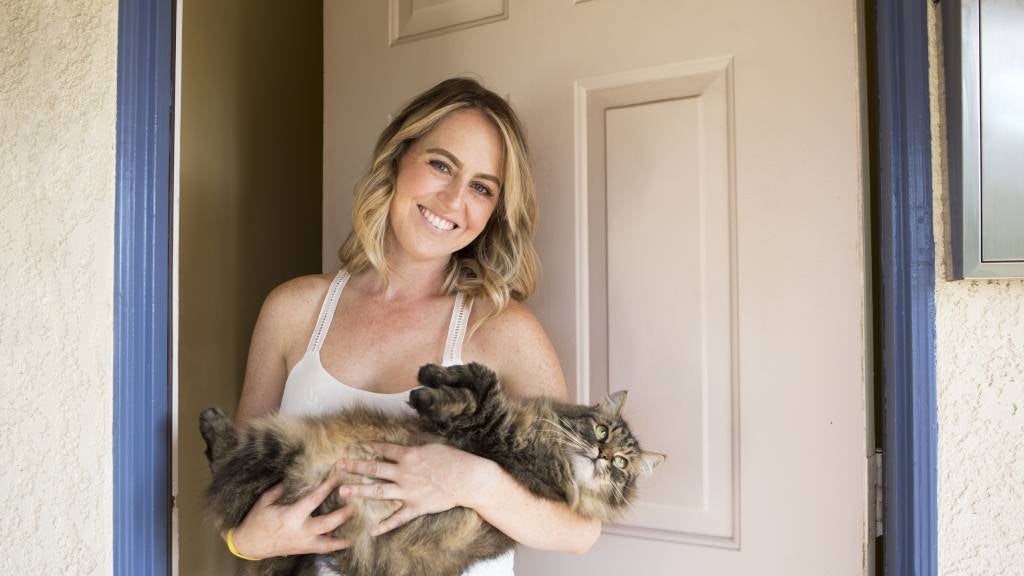How to write a pet CV when renting

Picture this - you've found your dream rental property - whether it's quiet, private, and surrounded by Aotearoa's beautiful wildlife, or close to the city, all the best restaurants, and local events - you want to do all you can to make sure you're the top choice for the landlord. You just need a great pet CV to get you (and your pet) across the line. If you have a pet, this may be trickier than usual, as many landlords have strict no-pet policies. However, there are benefits to having pets allowed in a rental – pet owners and landlords enjoy more stability.
SPCA advocates for affordable, pet-friendly rentals. It is important to note that landlords who allow pets can widen their pool of potential tenants. As well as this, landlords offering pet-friendly rentals are more likely to keep their properties rented for longer and have lower vacancy rates. A helpful benefit to have in your arsenal!
Something else to consider is that prices for rentals have to be disclosed upfront and cannot be increased later, based on what type of tenant (with or without a pet) moves in. So, tenants with pets do have some protections in place.
SPCA's Dr Alison Vaughan highlighted the challenge of limited affordable pet-friendly rentals hindering pet adoptions.
According to a recent Companion Animals New Zealand survey, 59% of those without pets expressed interest in having one. Of this group, 33% cited landlords or property restrictions as the main obstacle to pet ownership.
While renting with a pet can sometimes be a challenge, these challenges can often be overcome. There are so many positives that are possible in this process. To help you and your pet stand out from the crowd, it's time to adapt - it's time for your pet's CV to shine. Find out everything you need to know about pets and renting.
What is a pet CV?
A pet CV (otherwise known as a pet resume) is like a CV for your cat or dog. It highlights their best qualities and information that would make them an ideal tenant - well-behaved, vaccinated, and trained. This article can help alleviate any concerns the landlord may have about allowing pets on their property.
It's also a great way to showcase your pet's personality and help them stand out from other potential tenants' pets.
Why do you need a pet CV for a rental application?
Most New Zealand pet owners are responsible; ensuring behaviour training, adequate exercise, and socialisation for their pets. However, not all pet owners are alike, and some landlords worry about potential damage or disturbances from animals.
Some landlords are concerned about pets' impact on their property. Stories of damage caused by unruly pets and the potential for noise complaints may cause landlords to have some reservations.
Having a pet resume can address these concerns by providing information on your pet's behaviour and training and any vaccinations or registrations they have. It also shows that you are a responsible pet owner who is taking steps to ensure your pet is well-behaved in the rental property.
Benefits of a pet CV
- Professionalism: A pet CV shows that you're a tenacious tenant who is willing to go above and beyond to prove that your pet is a good fit for the property.
- Transparency: It’s a great way to be upfront about your pet and distinguish you and your pet as responsible tenants.
- Peace of mind: It reassures the landlord regarding the behaviour of your pet, easing nagging concerns.
How to write a pet CV
Think of your pet's CV as a CV for a job—it should highlight your pet's best characteristics, the steps you have taken to be a responsible pet owner and showcase why you and your pet would make the perfect tenants. It should also alleviate common concerns landlords have noise, damage, and cleanliness.
Here are some tips on how to write an effective pet CV:
- Personal information: Include your pet's name, age, breed and desexing status.
- Behaviour and training: Provide details on your pet's behaviour, training, and any certifications or awards they have received.
- Flea and worm treatments: Ensure your pet is up to date on their flea and worm treatments.
- Microchip and registration: SPCA recommends all pets are registered on the Companion animal register. Dogs over the age of 3 months must be registered with the local council and some councils offer responsible dog ownership licenses.
- References: Ask your veterinarian (or other professional such as a trainer) or a previous landlord or even a neighbour to provide a reference for your pet's behaviour and temperament.
- Lifestyle summary: Detail your pet's daily life, such as providing a short summary of their routine and relevant care, such as exercise, grooming and how often they go to daycare.
- Photos: Include clear photos of your pet to help the landlord visualise them in the rental property.
- Insurance status: The benefits of pet insurance may be abundant. Even though most policies don't cover damage caused by pets, having pet insurance may show your prospective landlord that you take your pet's health seriously and are a responsible owner.
Tips for renting with pets
While a pet CV can bolster your rental application, other strategies can also help tip the scales in your favour regarding pets and property.
Early communication
Don’t spring the pet surprise on your landlord. Talk about your pet during the initial contact and offer to share the pet CV. It shows consideration and a willingness to engage.
Set-up a meet and greet
Offer to schedule a meet and greet between your landlord and pet. It allows them to get to know each other and see that your pet is well-behaved.
Ask about fostering
If you don’t currently have a pet (but want one), why not ask your landlord if they are open to the idea of fostering. Fostering a pet from a reputable shelter such as the SPCA offers landlords and tenants a chance to trial allowing animals with the long-term commitment. Landlords can assess pet compatibility, potentially leading to pet-friendly policies, while tenants enjoy companionship without the responsibility of permanent ownership.
A responsible renter
Renting with pets is a fun adventure that just takes extra planning - but it doesn't have to be impossible. First impressions count, a pet CV could help charm your potential landlord. With some extra effort, and the help of tips discussed above, you and your companion can find the perfect home together! You may also consider pet insurance.
17 Jun 2024
